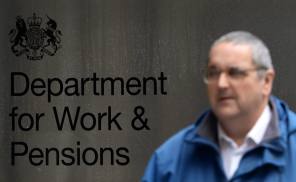
Opperman says people in their 20s should receive pension nudges

Talking to MPs at a Work and Pensions Committee meeting today (July 6), Opperman said “interventions should start way earlier” in order for the pensions industry to better engage people with their finances.
“I believe an earlier nudge is effective. I would like interventions at an earlier stage. In an ideal world, I would like interventions in people’s 20s,” he said.
The minister said he is trying to develop some “private, sector-led positive interventions of really different ways of looking at early interventions”, though he admitted he is “really struggling” to do this.
“I want people to be able to look at their work, wealth and wellbeing before the age of 50.”
In the past, the Department for Work and Pensions has focused on interactions with people between the ages of 50 and 65 under successive governments, according to Opperman.
The minister said he has “doggedly” pursued the suggestion in the 2017 Cridland report for mid-life MOTs designed to try and help people over 50 better understand their financial positions.
Opperman’s department has done a number of basic pilots of mid-life MOTs, coupled with private pilots by providers such as Aviva and Legal & General, which found employees did not have the pension they thought they had.
Late last year, Opperman also secured £5mn to do what he called “way bigger interventions and pilots” in this space.
DWP is currently working on an improved online version of the mid-life MOT alongside the Money and Pensions Service which the pensions minister said would be ready “in the next year or so”.
For men, Opperman said a mid-life MOT is “apparently” best done at the age of 47, for women “slightly later”.
“But my attempt is to do that at an earlier stage. This is the intervention that I think is the right way forward. There’s a commissioning process that’s ongoing.
“We have a significant amount of money to get the private sector to drive forward positive interventions.
“If I do nothing else, I want to do an earlier intervention below the age of 50.”
The minister intends to do “extensive piloting” with the money his department has to spark earlier interventions from the age of 45 nationwide.
But Opperman added: “As far as I’m concerned, that isn’t the end of the matter. Interventions like an MOT should actually begin way earlier.
“Which is why I say your first job, your marriage or civil partnership, your first child - these are three very big interventions where we would love the state to do a nudge in whatever shape or form that says: ‘Have you looked at your work, your wealth and your wellbeing?'”
Suggestions, Opperman said, would be basic, such as for those under 30 to get a private pension, or telling someone who has not already to get a health check-up.
“Doing that at different stages of your life seems to me a very good policy intervention which will trigger a change in behaviour,” the minister told MPs.
Opperman is having a separate discussion on how the government can incentivise businesses to get involved in both early and mid-life intervention.
He suggested businesses which do it could enjoy a tax break in the form of a deduction in corporation tax. Though he added: “That’s for the future, we’ve got to get the product right first.”
AE reforms dependent on economic recovery
MPs also quizzed Opperman on how his “mid-2020s” deadline to reduce the minimum age of auto enrolment to 18 and have AE contributions paid from the first pound of earnings has been affected by current economic conditions.
The minister said there was “no doubt” these two things would impact employers significantly during a time of rising costs of living.
He added that it depends on the new chancellor, Nadhim Zahawi, and the new Treasury following the resignation of the economic secretary to the Treasury, John Glen.
If the current fiscal situation continues, Opperman said it will be hard to impose greater burdens on employers, but that if the inflationary cycle eases off - as he believes it will - then his “confident expectation” to get this implemented is still mid-2020s.
“I can’t give a precise date…But everything is conceivable and doable”.
ruby.hinchliffe@ft.com



